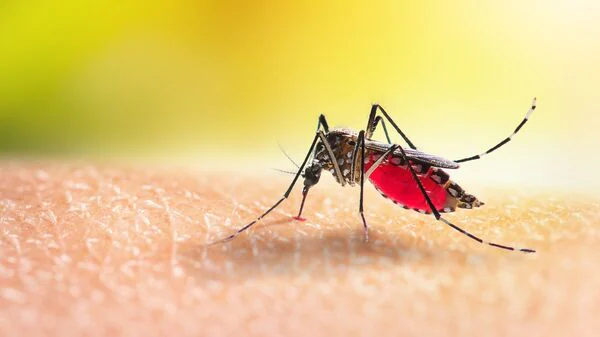Govt Directs States To Act On Malaria, Dengue Prevention Focus On Delhi
Union health minister J.P. Nadda in an advisory also advised state health ministers to review the situation and prepare action plans within 20 days. Municipal corporations, panchayats, and local bodies have been instructed to intensify community awareness drives.
Hospitals, including those under the Central government, have been directed to ensure they have adequate drugs, diagnostics, beds, and mosquito-free premises.
Also Read | Forget WebMD, can you trust AI with monitoring your health?Nadda, during a meeting on malaria and dengue on 10 September, highlighted that the country had made significant progress in its fight against malaria, reducing cases by 78% and deaths by nearly 78% between 2015 and 2024.
Between 2022 and 2024, 160 districts did not report a single case of malaria, while in 33 states and Union territories, the average number of annual cases detected-or the annual parasite Incidence-was less than one, according to the Union health ministry.
India's efforts to eliminate malaria by 2030 include the National Strategic Plan for Malaria Elimination (2023-27); Integrated Health Management Platform (IHIP) for real-time monitoring; enhanced Asha incentives for community-health workers; and large-scale distribution of long-lasting insecticidal nets (LLINs). The government also recognizes districts that achieve 'Zero Malaria' status.
Also Read | AIIMS-Harvard doctor explains viral 'Japanese walking' routine for better healthDuring the review, Nadda also took stock of the current status of dengue, noting that all states and Union territories (except Ladakh) are endemic to both dengue and chikungunya , with the highest risk of outbreaks during monsoon and post-monsoon periods.
To manage this, the National Dengue Control Strategy is focusing on surveillance, case management, vector control, and community awareness, under which more than 5,520 dengue and 2,530 chikungunya diagnostic kits have been supplied to states.
The government has also strengthened its diagnostic capacity with 869 sentinel surveillance hospitals and 27 apex referral laboratories that offer free testing services.
Legal Disclaimer:
MENAFN provides the
information “as is” without warranty of any kind. We do not accept
any responsibility or liability for the accuracy, content, images,
videos, licenses, completeness, legality, or reliability of the information
contained in this article. If you have any complaints or copyright
issues related to this article, kindly contact the provider above.
Most popular stories
Market Research

- Kucoin Presents Kumining: Embodying Simple Mining, Smart Gains For Effortless Crypto Accumulation
- BILLY 'The Mascot Of BASE' Is Now Trading Live On BASE Chain
- Primexbt Launches Empowering Traders To Succeed Campaign, Leading A New Era Of Trading
- United States Animal Health Market Size, Industry Trends, Share, Growth And Report 2025-2033
- United States Lubricants Market Growth Opportunities & Share Dynamics 20252033
- Japan Buy Now Pay Later Market Size To Surpass USD 145.5 Billion By 2033 CAGR Of 22.23%






















Comments
No comment